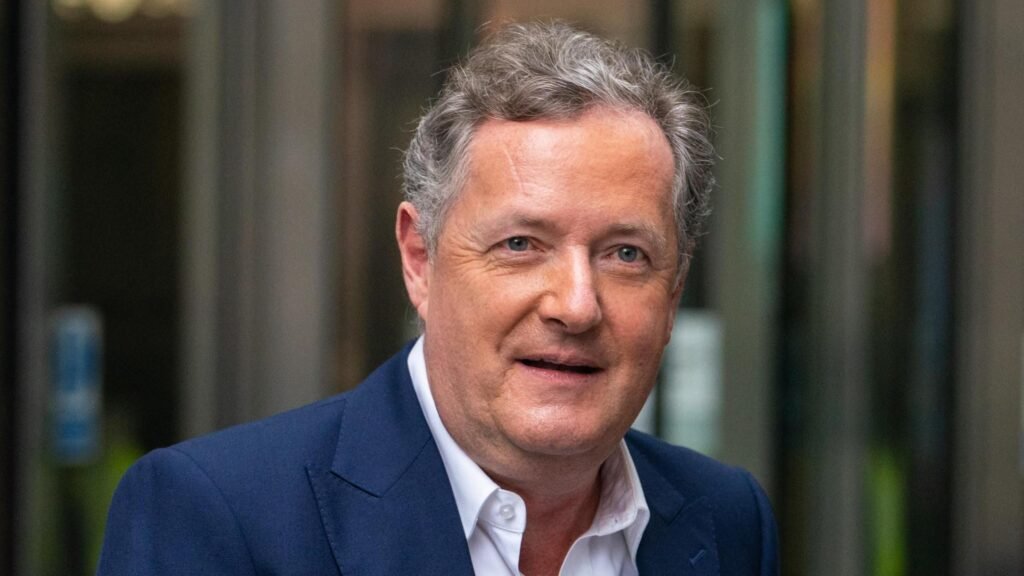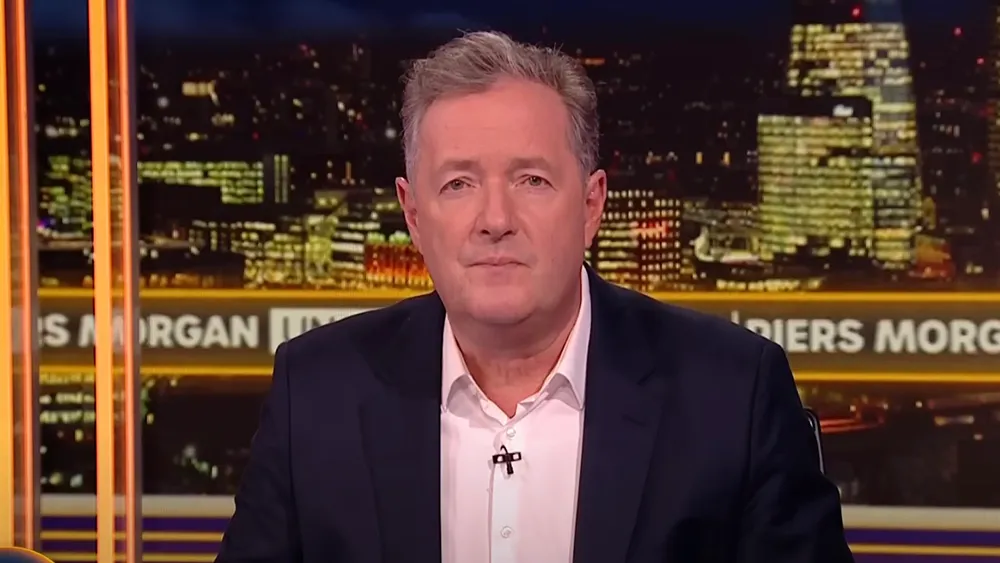British broadcaster and journalist Piers Morgan has never been one to shy away from polarizing topics. Known for his blunt commentary and unapologetically firm stance on geopolitics, Morgan’s latest comments on the ongoing Gaza conflict have sent shockwaves across media circles. Once a consistent defender of Israel’s right to security, Morgan has shifted to a more humanitarian-focused message, stating that the current war is “unacceptable” and must come to an end.
This pivot is more than rhetorical—it signals a change in the global narrative. As public opinion veers toward empathy and accountability, voices like Morgan’s are emerging not just as commentators but as unexpected catalysts for change.
A Visible Shift in Perspective
For years, Piers Morgan stood in firm support of Israel’s national defense, often citing their right to protect citizens from violent extremism. However, in recent months, his on-air commentary has taken a more sobering tone. The catalyst, he says, has been the overwhelming and graphic evidence of civilian suffering.

Instead of focusing solely on security threats and political justification, Morgan has started to ask different questions: What’s the human cost? What does victory look like if entire communities are reduced to rubble? How many more innocent lives must be lost?
His language has softened from defense to empathy. While he remains critical of extremist violence from all sides, he no longer masks concern for the Palestinian civilian population behind political complexity.
From Blame to Responsibility
What stands out most in Morgan’s recent interviews and op-eds is his refusal to let either side off the hook. He has fiercely criticized both Hamas for its acts of terror and Israel for what he calls a disproportionate military response. But beyond criticism, he now advocates for accountability and urgent diplomatic intervention.
His position has evolved from asking “Who started this?” to “How do we stop it?” That shift, though subtle, reflects a growing fatigue with endless blame games that achieve nothing while children, families, and entire communities suffer.
Morgan has made it clear: this is no longer just a political issue; it is a moral one.
Global Opinion: A Tectonic Movement
Morgan’s transformation is not happening in a vacuum. Across the globe, public sentiment is rapidly changing. While many still support Israel’s right to self-defense, there is a rising discomfort with the images of bombed hospitals, makeshift refugee shelters, and funeral processions stretching into the night.
Polls in major democratic nations reveal a majority of people now favor an immediate ceasefire. This is a seismic shift in the traditional balance of public opinion—especially in Western countries where support for Israel has been a political mainstay.
It’s not just about foreign policy anymore. People are reacting emotionally, viscerally. They see the images and ask themselves, “What if this were my family? My city? My children?” This human lens is turning the tide.
The Trump Angle: Dreams of Development or Distraction?
Amid the chaos, former U.S. President Donald Trump has taken a more controversial approach. Floating the idea of turning Gaza into a resort destination under the “Trump” brand, complete with skyscrapers and beachfront casinos, Trump’s comments have ignited a firestorm.
To his supporters, it’s vintage Trump—thinking big, offering bold alternatives, trying to inspire a vision beyond war. But to critics, the proposal is insensitive at best and wildly disconnected from the suffering on the ground. How do you sell luxury real estate in a war zone where people can’t even access clean water?
Trump’s words reflect a sharp contrast to Morgan’s humanitarian call. Where Trump sees real estate, Morgan sees rubble. Where Trump imagines investments, Morgan mourns the loss of life. Both aim to reframe the narrative—but only one centers the people caught in the middle.
The Ceasefire Imperative
At the heart of Morgan’s plea is a demand for a ceasefire. Not a symbolic gesture, not a temporary pause, but a meaningful, enforceable end to the bloodshed.

He argues that true strength is not shown in military dominance but in the courage to stop and rethink. A ceasefire, he says, is not about giving in to extremists; it’s about giving humanity a chance to breathe.
A pause in violence would allow humanitarian aid to reach civilians, open the door for real dialogue, and most importantly, stop the killing of innocents. It’s a minimum requirement for any hope of peace.
Morgan stresses that continuing war doesn’t make the region safer—it only hardens hearts, deepens trauma, and guarantees that the next generation will inherit even more bitterness than the last.
A Moral Awakening
Morgan’s own moral awakening is emblematic of what many are experiencing worldwide. Viewers who once tuned in to hear security analysis are now hearing stories of loss, survival, and the unbearable cost of conflict. And they’re responding.
Online discussions are flooded with personal reflections, calls for ceasefire, and open letters from doctors, teachers, and civilians pleading for an end. The conversation is no longer dominated by political experts—it’s being led by everyday people who have had enough.
This shift doesn’t erase the complexities of the conflict. It doesn’t offer easy answers. But it reintroduces a missing ingredient to the discourse: humanity.
Dismantling the Us vs. Them Mentality
Morgan has also taken a firm stance against the binary framing of the conflict—pro-Israel or pro-Palestine. He argues that the most honest position is to be pro-peace, pro-humanity, and pro-accountability for all actors involved.
He frequently says, “You can condemn Hamas and still care deeply about innocent Palestinians.” This kind of nuanced thinking has historically been drowned out by polarized shouting matches. But now, more people are listening.
Dismantling the “us vs. them” mentality is essential. Morgan’s reframing invites audiences to consider a third path—one that does not excuse terror, but also does not normalize disproportionate violence.
The Human Cost
Perhaps the most powerful element of Morgan’s evolving narrative is his focus on people rather than politics. Instead of debating maps and treaties, he shares the names of children who didn’t survive the night. Instead of quoting military strategy, he quotes grief-stricken mothers who have lost everything.
These stories cut through propaganda. They force people to confront the war not as a geopolitical chess game but as a humanitarian catastrophe.
And the more people hear these stories, the harder it becomes to turn away. That, Morgan believes, is how real change begins—not with politicians, but with people caring enough to demand better.
The Role of the Media
Morgan has not spared the media from criticism, including his own industry. He calls out the selective coverage, the tendency to frame one side as righteous and the other as villainous without examining the consequences for everyday people.
He believes the media must do better—show the suffering on both sides, question official narratives, and avoid becoming mouthpieces for power. Only then can journalism serve its highest purpose: truth in the service of justice.
Morgan’s call for balanced reporting has struck a chord, especially among younger audiences who are increasingly skeptical of traditional news outlets.
What Comes Next?

No one knows how or when the conflict will end. But Morgan insists that the end begins with moral clarity. He urges global leaders to shift from retaliation to resolution, from destruction to diplomacy.
That means honest peace talks. That means protecting civilians, even in times of war. That means recognizing that real security comes not from walls and weapons, but from coexistence and mutual recognition.
Morgan’s vision is not utopian—it’s painfully grounded in the reality of what war does to people. But it is also hopeful. It imagines a world where we stop asking who fired first and start asking how we prevent the next trigger from being pulled.
Conclusion
Piers Morgan’s transformation is more than a media moment. It is part of a broader awakening happening around the world. His call to end the “unacceptable” war in Gaza isn’t just commentary—it’s a plea for humanity.
At a time when polarization defines so much of our public discourse, Morgan’s pivot reminds us that even the loudest voices can change. And when they do, they can bring others with them.
The question now is whether world leaders will listen—not just to Morgan, but to the millions crying out for peace.
Do follow UAE Stories on Instagram
Read More: GymNation Supercharges Leadership to Ignite Regional Fitness Boom













